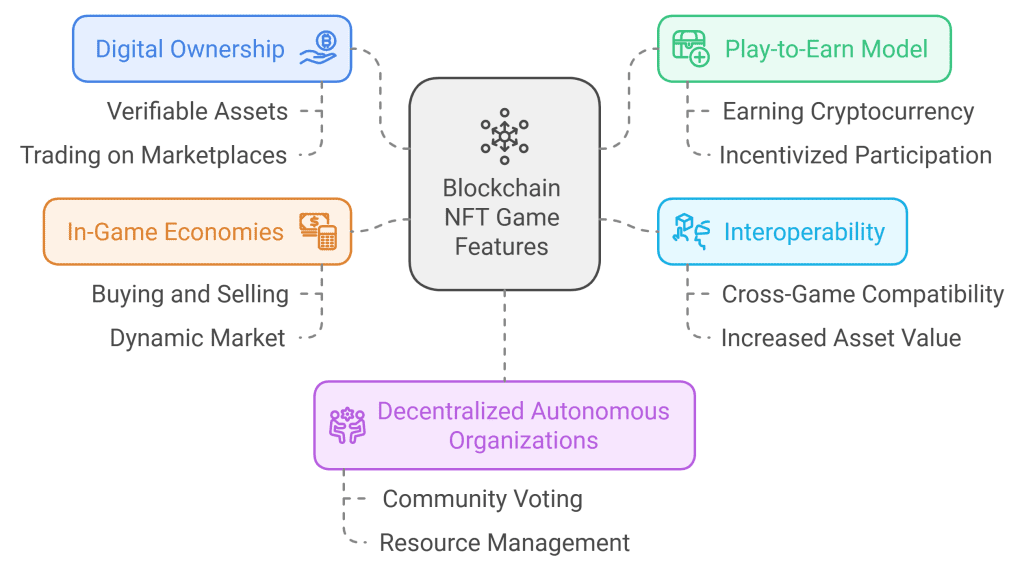BD Help Zone
Your go-to source for insightful news and information.
Beyond Borders: The Quest for Seamless Crypto Game Experiences
Unlock a new world of gaming! Explore the future of crypto games and discover how to enhance your experience beyond borders.
Exploring the Future of Cross-Border Cryptocurrency Gaming
The landscape of cross-border cryptocurrency gaming is evolving at an unprecedented pace, driven by advancements in blockchain technology and the growing acceptance of digital currencies. As players from diverse geographical locations engage in these online games, they bring along unique cultural perspectives and gaming preferences that enrich the gaming experience. The integration of cryptocurrency provides seamless transactions across borders, eliminating traditional currency conversion issues and fostering a more inclusive environment for gamers worldwide.
Looking ahead, the future of cross-border cryptocurrency gaming appears bright, marked by increased collaboration between developers and regulatory bodies to ensure fair play and protect user assets. We can anticipate the emergence of decentralized platforms that offer players the ability to retain ownership of in-game assets through non-fungible tokens (NFTs). As the industry continues to innovate, the potential for cryptocurrency gaming to break down international barriers and create a truly global gaming community is becoming increasingly tangible.

Counter-Strike is a popular tactical first-person shooter that has captured the hearts of millions worldwide. Players engage in team-based combat, aiming to complete objectives or eliminate opponents. If you're looking to enhance your gaming experience, check out the bc.game promo code for exciting rewards!
How Blockchain Technology is Reshaping Global Gaming Experiences
Blockchain technology is revolutionizing the gaming industry by introducing transparency, security, and decentralized ownership. By utilizing blockchain systems, players can now possess true ownership of in-game assets, which were previously locked within centralized platforms. This shift allows gamers to trade, sell, or utilize their assets across different games, thereby enhancing their overall experience. Moreover, the integration of blockchain enables developers to create play-to-earn models, where players can earn cryptocurrency or tokens through gameplay. This innovative approach not only incentivizes players but also fosters a more engaged and loyal gaming community.
Furthermore, the use of smart contracts in gaming development allows for automatic execution of agreements without the need for intermediaries. This reduces the risk of fraud and ensures that players receive their rewards promptly. Additionally, the transparent nature of blockchain promotes fair play and trust among participants. As the gaming industry continues to embrace these technologies, we can expect to see a surge in unique gaming experiences that prioritize player rights and foster an ecosystem where everyone can benefit. In summary, blockchain technology is indeed reshaping global gaming experiences, paving the way for a more equitable and dynamic future.
What Challenges Do Developers Face in Creating Seamless Crypto Games?
The world of crypto gaming is rapidly evolving, but developers face numerous challenges in creating seamless crypto games. One significant hurdle is the complexity of blockchain technology. Unlike traditional gaming, integrating blockchain requires a profound understanding of decentralized networks, smart contracts, and the unique mechanics of cryptocurrencies. Developers must also tackle issues related to transaction speeds and costs, as blockchain transactions can be slow and expensive, potentially leading to a frustrating experience for players who expect immediate and low-cost transactions.
Another major challenge is ensuring security and scalability. With the rise of crypto-related hacks and scams, developers must prioritize robust security measures to protect their users' assets. Furthermore, as games gain popularity, they must be scalable to accommodate a growing player base without compromising performance. Achieving this balance between security and performance often requires innovative solutions and considerable resources, making the development of seamless crypto games a daunting yet vital task for developers.